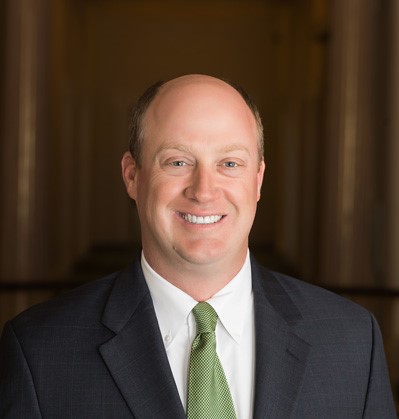Alabamians are feeling a bit of relief at the grocery store checkout lines as a result of the tax cut on food that a coalition of conservative lawmakers and I pushed through the Legislature during the 2023 regular session.
Beginning on Sept. 1, the state’s 4% sales tax on grocery items was reduced to 3%, and if growth in the Education Trust Fund continues at the same pace as recent years, another $150 million tax cut will automatically go into effect as soon as 2024.
My goal is to continue chipping away at the tax until it is eliminated altogether in the near future.
Alabama was one of only three states that taxed groceries at the full rate – South Dakota and Mississippi are the others – and we are one of only 13 states in the nation that levy any tax on food.
The newly-implemented tax cut applies to any food that falls under the definitions of the federal food stamp program, known as SNAP in D.C. circles, which means all groceries are covered except for pre-prepared, hot food from in-store delis.
A clause in the law that is now in effect blocks cities and counties from raising their sales taxes on groceries so Alabamians can be assured of the intended savings, but mayors, council members and commissions do have the option of following our lead and cutting the local sales taxes on groceries if they choose.
For several decades, advocacy groups pushed to remove the grocery tax, but their plans always required new taxes to be shifted onto the backs of the middle class in order to offset revenue losses. As a conservative Republican who believes in cutting taxes, not simply moving them around like a rigged shell game, such proposals were considered non-starters in my eyes and those of my GOP colleagues.
During my term in the Alabama House and now, as lieutenant governor, it became obvious that the commonsense budgeting practices put in place after Republicans gained control of the Legislature in 2010 were creating surpluses and comfortable fiscal cushions that did not previously exist.
The pro-business measures we enacted were also creating an economic atmosphere that attracted both new and expanding industries and encouraged employers ranging from the largest companies to the smallest mom-and-pop storefronts to create new jobs and opportunities for Alabamians who were willing to work.
Soon enough, the unprecedented revenues flowing into the state treasury meant we could afford to begin eliminating the grocery tax without burdening any Alabamians with new or offsetting levies.
I worked closely with Sen. Andrew Jones, R-Centre; House Education Budget Chair Danny Garrett, R- Trussville; and Senate Education Budget Chair Arthur Orr, R-Decatur, to create a workable plan that also offered full protection to public education funding for K-12 schools, community colleges and four-year universities.
I personally met with countless experts, advisors, and associations, including the grocers who collect the tax at the point of sale, and rallied them to join us in taking action.
Once the bill was drafted, my office recruited all 35 members of the Alabama Senate and 100 of the 105 House members to sign on as sponsors, which was considered by many pundits to be a political miracle in the highly partisan and philosophically contentious times in which we live.
The legislation eventually passed both chambers with unanimous, bipartisan support.
It is estimated that our dinner table tax cut will save the average Alabama family the cost of two weeks of groceries, which is essential when Bidenomics is causing inflation to skyrocket along with the price of gas and other everyday essentials.
Between 2022 and 2023, the cost of food rose by an average of 7.7% according to the U.S. Bureau of Labor Statistics. Eggs alone cost a third more than they did last year, bread and cereal are up by 25%, and meat, fish, and chicken are substantially higher.
Our success in cutting the grocery tax demonstrates what can be accomplished if we stay true to our conservative beliefs, build consensus and have the courage to attempt to accomplish what many say can’t be done.
But the job is only half-complete.
We must eliminate the second half of the grocery tax, and a legislative study group we empaneled is already running the numbers, making plans and putting together a blueprint to accomplish that goal.
In the meantime, Alabamians will find their wallets are just a bit fatter and their bank accounts are just a bit fuller as savings at the checkout continue to accrue, but rest assured that my colleagues and I are working hard to finish our mission of providing you with full relief from taxes on the groceries you purchase.





























